Honey bee farming (also called apiculture or beekeeping) is the maintenance of bee colonies. In clear words, ‘bee farming is the process of maintaining of bee colonies or hives for the purpose of honey or other commercial products production’.
Most of the bees which are used in commercial production are honey bees in the genus apis. But other honey producing bees such as Melipona stingless bees are also kept. A location where the bees are kept is called an apiary or bee yard.
An apiarist (also called beekeeper) keeps bees for collecting their honey and other products that the hive produce (including beeswax, propolis, flower pollen, bee pollen, and royal jelly), to pollinate crops, or to produce bees for sale to other beekeepers.[1]
But the main and most valuable product from a commercial bee farming business is ‘honey’. Honey is very popular and has good demand and value in the market.
Commercial bee farming or beekeeping business is actually one of the oldest tradition in many countries. And commercial honey bee farming is becoming a popular business due to the good local and international demand of honey.
Commercial honey bee farming is no doubt a very profitable business, at the same time it also help to increase agriculture productivity through pollination.
For example, you can start your honey bee farming business near a mustard or sesame field. You will get valuable honey, and the sesame or mustard producer will get better production. And both of you will be benefited.
However, if you are planning for starting a honey bee farming business, then do it. Don’t worry! It’s really a very profitable business.
Advantages of Honey Bee Farming Business
There are numerous advantages/benefits of starting a honey bee farming business. Here we are trying to describe about the top advantages of commercial honey production business.
- Honey bee farming is no doubt a profitable business. So, you can start this business for making profits.
- It is an established business, and many people are doing this business from a long time ago.
- Maintaining a beehive doesn’t require a huge amount of money or labor. So, it’s relatively easy to start.
- Commercial honey production business even doesn’t require a fertile land.
- This business gives many benefits to the farmers as many plants and crops depends on bees for pollination.
- Honey and other products of a bee farm like Beeswax, Royal Jelly, Bee Venom are of commercial value and can provide additional income to farmers.
- Commercial beekeeping is a good business. And it can be an employment source, especially for the educated unemployed people.
- Consuming honey on a regular basis has many health benefits. And you can enjoy fresh honey if you start your own bee farming business.
How to Start Honey Bee Farming Business?
Starting commercial honey bee farming business is not too easy. It requires lots of tasks to maintain a successful bee farm. But all these tasks will be easy for you if you complete a training.

Having a full training is a must for starting this business. Here we are trying to describe more information about the steps for starting and operating a successful honey bee farming business.
Step 1. Complete Training
You must have to complete training before starting commercial honey bee farming business. Without training, you will not be able to operate your business perfectly.
It is recommended to learn practically from an existing beekeeper in your area. And it is also recommended to work with local beekeepers in your area, especially if you have no experience working with bees.
Government organizations are providing beekeeping training in some countries. You can have training from such training organizations (if available in your country). Or learn from an experienced beekeeper.
Step 2. Determine Beekeeping Methods
You can start your beekeeping business in many different methods. The most common methods of beekeeping are traditional, modern, natural, backyard and indoor.
Step 3. Select a Good Location
Selecting a good location is very important for commercial honey bee farming business. You have to consider many factors while selecting a location for starting this business.
- Nectar and pollen producing plants should be near to the colony, and should be in abundance. A radius of 3 to 8 km should be good for most of the bees.
- You have to keep the colonies in shaded areas during summer. This will keep the bees protected from direct sunlight.
- It will be better if the selected land is far away from the areas with high pesticides or insects. Pesticides or insecticides should not be heavily used near a bee hive.
- A good source of clean water is very important for keeping bees. So ensure a good water source in your selected location. Water is very important and needed for diluting honey by bees and also for regulating the temperature of the hive.
Step 4. Purchase Required Equipment
You will need different types of equipment for keeping honey bees in modern ways. Some common beekeeping equipment are:
- Soft leather or canvas cloth gloves.
- A container for the honey bees for making a nest for themselves.
- Hive tool. It is used to help move apart the hive frames inside the bee colony.
- Bee veil, which is used to protect the face and neck from stings.
- If you are willing to keep the bees in traditional method, then you will need clay pots, wall hives tree trunks etc.
- And in case of raising them in modern methods, you will require hive frame, super chamber, floor board, queen excluder etc.
Determine your production method, and then purchase all the required equipment.
Step 5. Feeding
It’s not recommended to feed the bees. Rather you must ensure a crop field is available near your farm.
Step 6. Breeding
Generally queen bee stays in a big chamber of the colony which is located at the lower part of the beehive. A queen bee generally met with drone once in her life.
She met with several (12-15) drones and store up to 6 million sperm to her spermatheca. And she use those sperm for rest of her life.
She keeps the sperm alive by using one type of material, produced from her body. After two days, After two days of mating she starts laying eggs.
On an average a queen bee can lay 2000-3000 eggs daily. They lay both fertile and infertile eggs. The next queen of the colony and worker bees born from the fertilized eggs. And the infertile eggs produces drone bees.
Step 7. Caring & Other Management
Caring bees is not important. They will keep good care of themselves. You just keep the colony clean and well managed.
Step 8. Control Diseases and Other Problems
The bee can be get affected by different types of enemies and diseases. About two major enemies and diseases are described here. In wet condition the bees are affected by wax-battle. This diseases can be determined by seeing the hive covered with a layer like spider net.
By keeping the box neat and clean and changing them occasionally we can prevent this diseases. Potassium permanganate can use in the bee box to prevent this. The door of the box should closed at night and open again in the morning.
The another harmful diseases of bee is acarine. The wing of the affected bee looks like ‘A’. And they move by using their chest. The closet of the affected bee is yellow colored.
The bees moves here and there separately. In many cages they become paralyzed. Affected quin bees stops laying eggs. The main solution of this diseases is spreading mithael solicide vapor in the cage.
Step 9. Harvesting
Honey, Bees Wax, Royal Jelly, Bee Venom, Propolis & Pollen are the main bee products from a commercial honey bee farming business. You should harvest honey at the end of a flowering season.
In traditional system, you should select a comb which contain ripe honey covered with a fine layer of white beeswax, generally those nearest the outside of the nest.
And honey is extracted only from super combs using honey extractor equipment.
Step 10. Marketing
Marketing honey or other bee products is very easy and simple. Because, these products already have good demand and value in both local and international market. You will probably be able to sell your products in the local market.
These are the common steps and ways for starting and operating a successful bee farming business. Hope this guile will help you. Good luck and may God bless you!

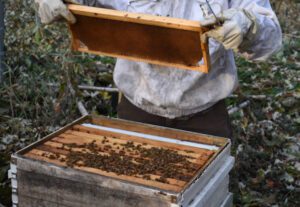
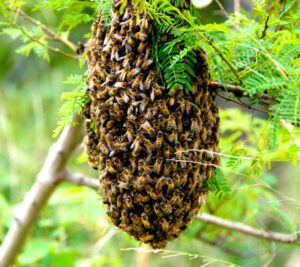
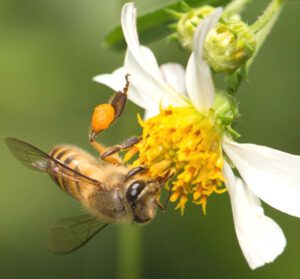
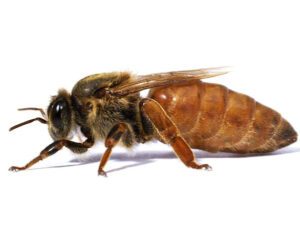
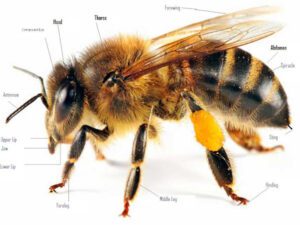
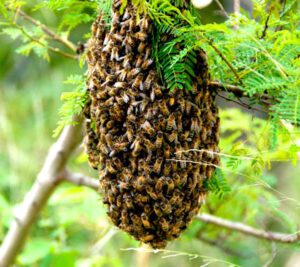
Very interesting and educative. Thanks for the piece.
You are welcome!
Held information. Thank you
Hi I really learned something from this site I have some basic training abut bee keeping, right now I am selling pure honey looking forward to start my farm but I need more training please
Very interesting and precise. With this iam going to start my dream plan of becoming a consultant in honey production cycle
Very interesting business. I would like to know the price of the beehive and other equipment.
Exact price of the beekeeping equipment can vary from place to place. Please consult with any existing farmer in your area. Good luck!
What are the benefits of bee farming, and how can one start a beekeeping venture?
We have already listed information related to this subject above, but here we are trying to say about the benefits of bee farming again. Bee farming actually offers numerous benefits, both for the environment and beekeepers themselves. One primary benefit is the production of honey, a valuable natural sweetener and a source of income for beekeepers. Bees play a crucial role in pollinating plants, including many crops, which contributes to increased agricultural yields. Beekeeping can also be an environmentally friendly and sustainable agricultural practice. To start a beekeeping venture, one should first acquire the necessary knowledge and skills through courses or mentorship. Then, invest in the appropriate equipment, such as beehives, protective gear, and tools. Choose a suitable location with access to nectar-rich plants, ensure the health of the bee colony through regular inspections, and practice responsible and ethical beekeeping to help preserve these vital pollinators and their habitats. Good luck!